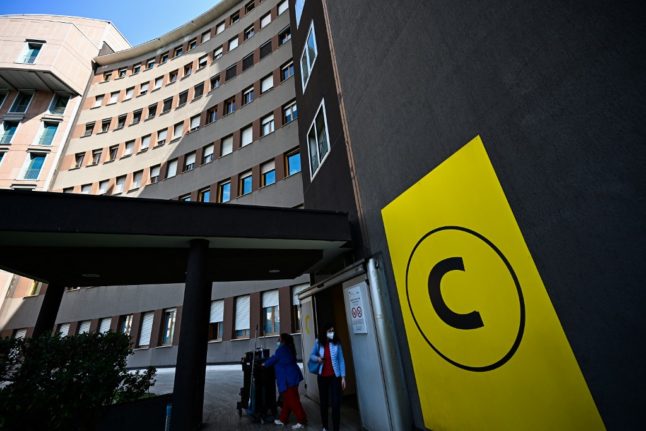Question: “Regarding Italy’s new healthcare charge, it is our understanding that UK citizens who were full-time residents prior to Brexit have been grandfathered into the service and thus will not owe the €2,000 annual fee. Are we correct?”
Italy’s government has caused widespread confusion in recent months by including a mention of a planned €2,000 annual charge for some foreign residents to register with its healthcare system in a draft budget law published in October – but giving very few details.
The healthcare charge plan was confirmed in the final text of the 2024 budget law, approved at the end of 2023, which contained more details and cleared up some of the confusion.
READ ALSO: Q&A: What you need to know about Italy’s €2,000 healthcare fee
But it did not clarify whether and how the new charge would apply to British nationals who were resident in Italy before the end of December 2020 and are covered by post-Brexit Withdrawal Agreement (WA) rules.
The WA states that British nationals who were legally registered as resident in Italy before the Brexit date should be treated the same as EU citizens in Italy.
Italy’s health ministry confirmed to The Local on Tuesday that British citizens who were previously entitled to register with the national health service on a ‘mandatory’ (i.e., free) basis would be able to continue doing so.
“British citizens residing in Italy prior to Brexit, covered by the withdrawal agreement, who have accrued a permanent right, retain the right to mandatory enrolment,” a health ministry spokesperson wrote.
This appears to mean that nothing has changed for those who were previously entitled to free healthcare.
The rules on who is eligible for free healthcare have not been amended, which also means nothing should change for those British residents who are not currently entitled to free healthcare but will be in future.
READ ALSO: Which foreign residents in Italy will have to pay the €2k healthcare fee?
As for British citizens who became resident in Italy after Brexit, they would be subject to the same rules as all other non-EU citizens.
British citizens who arrived in Italy after the end of December 2020 will still be able to access the health service for free if they fall into the category of foreign residents entitled to ‘mandatory’ registration or registration-by-right, which includes staff of Italian companies, the self-employed, and those on a family reunification permit, among others.
Anyone who doesn’t fall into this category can sign up on a voluntary basis, but will now have to pay the new, higher fee of at least €2,000, discounted to at least €700 for those in Italy on a study permit and €1,200 for au pairs.
Read more about who need to pay the fee and how it works in a separate article here.
Please note that The Local is unable to advise on individual cases. For more information on how the healthcare fees may apply in your situation, consult your local Asl office or your Italian commercialista (accountant).



 Please whitelist us to continue reading.
Please whitelist us to continue reading.
Member comments